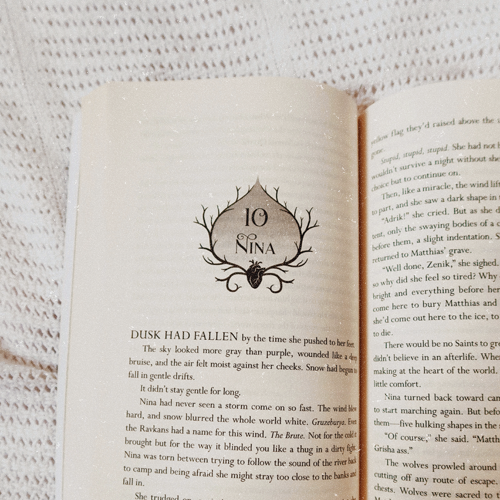Worldbuilding Inspiration: Class, Family, Cuisine
/@ dreaming by dusk
Worldbuilding is one of my favourite creative past-times and pre-writing activities. It is one of the greatest ways to immerse yourself in, and connect with, a story you are writing. There are countless things you could write about, many of which I have discussed here already. Such as geography, politics, justice, and commerce.
When I am building a new fictional world for one of my stories, I always have the most fun when I am writing about the elements of culture; whether for a specific place or the whole world.
It is so much fun for me to close my eyes and picture the daily lives, beliefs, and rituals of my main characters as well as the characters around them. A fictional world has a touch of realism when you take the time to create fictional cultures and worlds perfectly.
Today, I’m sharing some worldbuilding inspiration for writing fantasy classes, families, and cuisine. I use many of these ideas, prompts ad questions in my own pre-writing activities. If you’re seeking some creative inspiration for your writing, stay here and read the rest of this post.
Classes
Potentially, this is one of the most important elements of fantasy culture as it helps to map out the social hierarchy and categories of the world, and what its inhabitants view as powerful or powerless. These classes, or categories, may be related to wealth, gender, sexuality, occupation, education, religion, or race. In a fantasy world, magic or superpowers may be another factor for the social hierarchy.
The most common of these which have been present in our real world for a long time is the division between the upper class, middle class, and lower class. There are so many resources on class systems in the historical context that you can use as inspiration and extended reading when worldbuilding, and many philosophies that scholars have interpreted over the years.
It is also important to factor into your writing the consequences that the class system will have on your fictional world. Classes can impact, very severely, where a person may live, work, or study. It may impact the food and nutrition they get or their access to clean water and medical care. It may impact what they wear, how they socialise, and what they do and what they believe. You want to keep all of these in mind as you craft your world’s class system.
Some Questions:
What does the fictional society value the most?
How does this impact the society as a whole?
Is there evidence of class struggle or class warfare?
Are the people in this society happy/angry about the hierarchy?
How do the divided groups view each other?
In what other instances are their divisions and category outside the society’s main value?
Family
This part of worldbuilding covers a range of subjects because the way families are structured and behave is integral to creating a fictional culture in your writing. Families are often formed in 1 of 2 ways – either by birth or by marriage. However, there is also another way - the family of friendship most commonly seen in the “found family” trope as many readers love.
A family presents the most basic social unit in a society, and understanding how families are arranged in your fictional world will help you determine how the inhabitants of the world are raised to think, feel, and act. Such as what beliefs, values, and rituals are passed down from parents to children, or how people live together, eat together, and are nurtured together.
It is a good idea to consider what makes a family in your fantasy world. Like grandparents, parents, and children. Or whether the term ‘family’ is extended to aunts, uncles, cousins, step-parents, step-children, and more. This will shape how families in your writing interact with each other.
Some Question:
What is the conventional family unit in your fictional world?
Are there any unconventional family units as well?
What are the world’s views and practices of marriage?
Is it the mother, father, or someone else that raises children?
At what age do children leave their homes?
Who is the authority figure in the family unit?
What beliefs, values, and rituals are passed down?
How do family units live and eat together?
What gender roles are prominent in this world?
Cuisine
Style of food is commonly influenced and inspired by the types of meat, vegetables, fruits, grains, and herbs that are prominent in a specific place, or what is accessed through trade with other places. It is also influenced by the type of methods used to prepare or cook food that is passed down amongst a specific group of people. Such as how, from a very wide point of view, the region of Italy is well-known for pasta dishes while India is well-known for its curry dishes.
When writing a fictional world, you want to take care in creating a list of meals, ingredients, and recipes that are common to the inhabitants of the world. You may even consider, from a wider perspective, what different places in your world are known for, food-wise and drink-wise. You also want to keep these meals, ingredients, and recipes consistent with the inhabitants of the world and the terrain, flora, and fauna that are prominent in the fictional region.
Some Questions:
What are some common breakfasts?
What are some common lunches?
What are some common dinners?
What are some common drinks?
What are some common snacks?
How are the meals prepared? Who cooks them?
What are meals at festivals and gatherings like?
Is there street food? What does it look like?
Is the food rich with flavour or very bland?
How are recipes for meals learned/taught?
These are just 3 of some of the characteristics of a fictional culture. To recap, these are developing a class system and how that system shapes a society, creating the basic family unit and how parents and children socialise with each other, and making a list of foods and drinks that will represent the fictional culture and region. Don’t worry, this is only the beginning of writing cultures for fantasy worlds. I promise there are more in this sub-section to come!
Happy writing!
Related Posts:
FOLLOW ME ON SOCIAL MEDIA FOR MORE COZY, VINTAGE CONTENT













